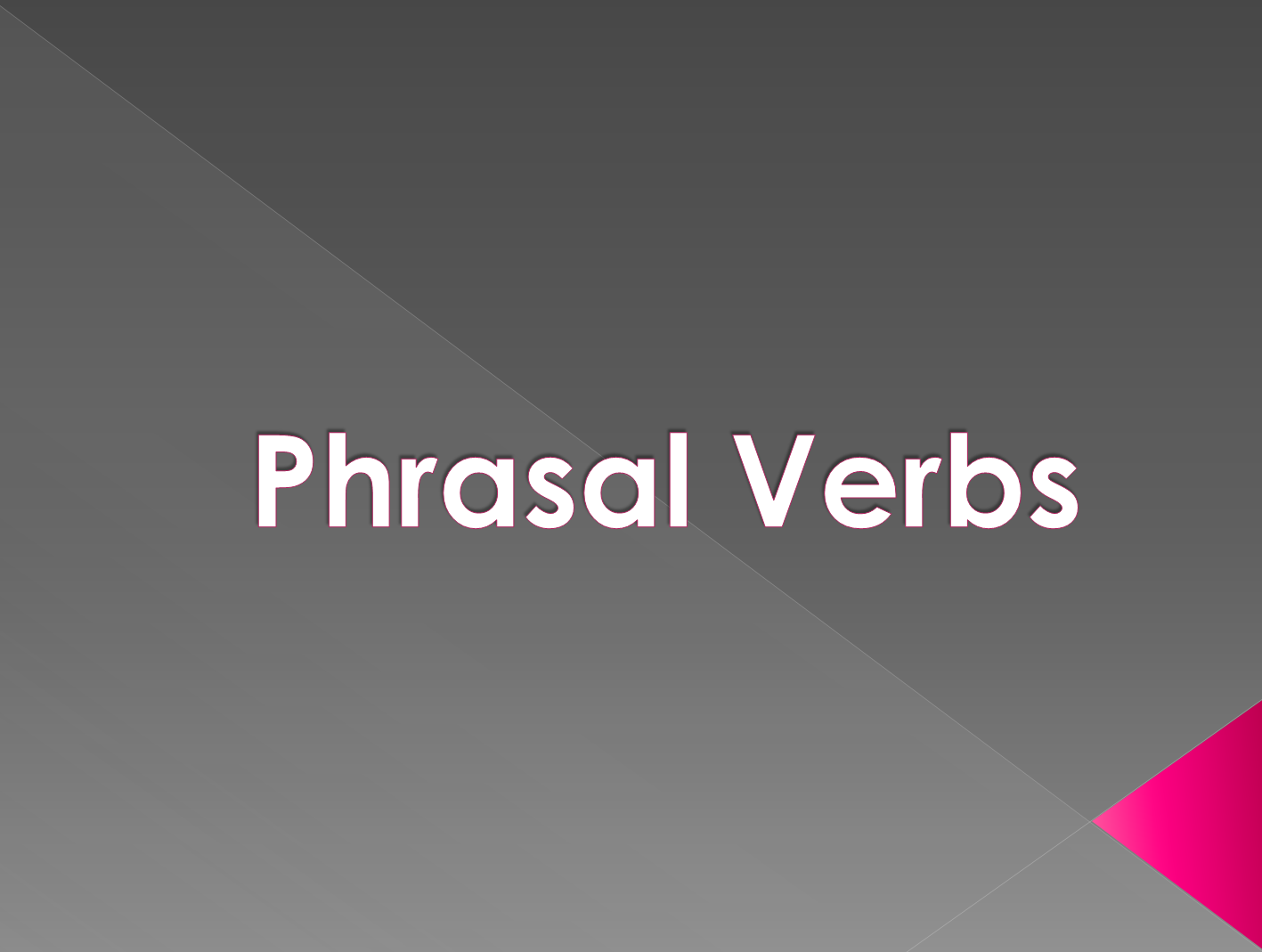
English grammar is the system of rules that governs the structure of words, phrases, clauses, and sentences in the English language. It helps us to communicate clearly and effectively, and to understand written and spoken language.
Good grammar is important because it helps to make the meaning of our words clear and allows others to understand what we are trying to communicate. It also helps to make our writing and speech more professional and polished. Additionally, a strong foundation in grammar can help improve reading comprehension and writing skills.
The following words and expressions are used in this book to talk about grammar and other aspects of language.
Abstract noun (the opposite of a concrete noun) the name of something which we experience as an idea, not by seeing, touching etc. Examples: doubt; height; geography.
Active An active verb form is one like breaks, told, will help (not like is broken, was told, will be helped, which are passive verb forms). The subject of an active verb is usually the person or thing that does the action, or that is responsible for what happens.
Adjective a word like green, hungry, impossible, which is used when we describe people, things, events etc. Adjectives are used in connection with nouns and pronouns. Examples: a green apple; She’s hungry.
Adverb a word like tomorrow, once, badly, there, also, which is used to say, for example, when, where or how something happens. There are very many kinds of adverbs with different functions:
Adverb particle a short adverb like up, out, off often used as part of a phrasal verb (e.g. clean up, look out, tell off).
Affirmative an affirmative sentence is one that makes a positive statement —not a negative sentence or a question. Compare I agree (affirmative); I don’t agree (negative).
Agent In a passive sentence, the agent is the expression that says who or what an action is done by. Example: This picture was probably painted by a child.
Article A, an and the are called ‘articles’. Alan is called the ‘indefinite article’; the is called the ‘definite article’.
Aspect Grammarians prefer to talk about progressive and perfective aspect, rather than progressive and perfect tense, since these forms express other ideas besides time (e.g. continuity, completion). However, in this book the term tense is often used to include aspect, for the sake of simplicity.
Attributive Adjectives placed before nouns are in ‘attributive position’. Examples: a green shirt; my noisy son.
Auxiliary verb a verb like be, have, do which is used with another verb to make tenses, passive forms etc. Examples: She was writing; where have you put it?
Clause a part of a sentence which contains a subject and a verb, usually joined to the rest of a sentence by a conjunction. Example: Mary said that she was tired. (The word clause is also sometimes used for structures containing participles or infinitives with no subject or conjunction. Example: Not knowing what to do, I telephoned Robin.)
Cleft sentence a sentence in which special emphasis is given to one part (e.g. the subject or the object) by using a structure with it or what. Examples: It was you that caused the accident; what I need is a drink.
Collective noun a singular word for a group. Examples: family; team.
Comparative the form of an adjective or adverb made with -er (e.g. older, faster); also the structure more + adjective/adverb, used in the same way (e.g. more useful, more politely
Complement
(1) a part of a sentence that gives more information about the subject (after be, seem and some other verbs), or, in some structures, about the object. Examples: You’re the right person to help; She looks very kind; They elected him President.
(2) a structure or words needed after a noun, adjective, verb or preposition to complete its meaning. Examples: the intention to travel; full of water; try phoning down the street.
Compound a compound noun, verb, adjective; preposition etc is one that is made of two or more parts. Examples: bus driver, get on with; one-eyed.
Concrete noun (the opposite of an abstract noun) the name of something which we can experience by seeing, touching etc. Examples: cloud; petrol; raspberry.
Conditional
(1) a verb form made by using the auxiliary would (also should after I and we). Examples: I would run; she would sing we should think.
(2) A clause or sentence containing if (or a word with a similar meaning), and perhaps containing a conditional verb form. Examples: If you try you’ll understand; I should be surprised if she knew; what would you have done if the train had been late?
Conjunction a word like and, but, although, because, when, if which can be used to join clauses together. Example: I rang because I was worried.
Consonant for example, the letters b, c, d, f, g and their usual sounds.
Contraction a short form in which a subject and an auxiliary verb, or an auxiliary verb and the word not, are joined together into one word. Contractions are also made with non-auxiliary be and have. Examples: I’m; who’ve; John’ll; can’t.
Co-ordinate clause one of two or more main or subordinate clauses of equal ‘value’ that are connected. Examples: Shall I come to your place or would you like to come to mine? It’s cooler today and there’s a bit of a wind; she said that it was late and that she was tired.
Countable noun a noun like car, dog, idea, which can have a plural form, and can be used with the indefinite article a/an.
Declarative question a question which has the same grammatical form as a statement. Example: That’s your girlfriend?
Determiner one of a group of words that begin noun phrases. Determiners include alai?, the, my, this, each, either, several, more, both, all.
Direct speech speech reported ‘directly’, in the words used by the original speaker (more or less), without any changes of tense, pronouns etc. Example: She looked at me and said this is my money’.
Discourse marker a word or expression which shows the connection between what is being said and the wider context. A discourse marker may, for example, connect a sentence with what comes before or after, o may show the speaker’s attitude to what he/she is saying. Examples: on the other hand; frankly, as a matter of fact.
Duration how long something lasts. The preposition for can be used with an expression of time to indicate duration.
Ellipsis leaving out words when their meaning can be understood from the context. Examples: (It’s a) Nice day, isn’t it? It was better than I expected (it would be).
Emphasis giving special importance to one part of a word or sentence (for example by pronouncing it more loudly; by writing it in capital letters; by using do in an affirmative clause; by using special word order).
Emphatic pronoun reflexive pronoun (myself yourself etc) used to emphasise a noun or pronoun. Examples: I’ll tell him myself, I wouldn’t sell this to the king himself.
Ending something added to the end of a word, e.g. -er, -ing, -ed.
Formal the style used when talking politely to strangers, on special occasions, in some literary writing, in business letters, etc. For example, commence is a more formal word than start.
Frequency Adverbs of frequency say how often something happens. Examples: often; never; daily; occasionally.
Fronting moving a part of a clause to the beginning in order to give it special emphasis. Example: Jack I like, but his wife I can’t stand.
Future a verb form made with the auxiliary shall/will + infinitive without to. Examples; I shall arrive; Will it matter?
Future perfect a verb form made with shall/will + have + past participle. Example: I will have finished by lunchtime.
Future progressive (or future continuous) a verb form made with shall/will + be + .ing. Example: I will be needing the car this evening.
Gender the use of different grammatical forms to show the difference between masculine, feminine and neuter, or between human and non¬human. Examples: he; she; it; who; which.
Gerund the form of a verb ending in -ing, used like a noun (for example, as the subject or object of a sentence). Examples: Smoking is bad for you; I hate getting up early.
Gradable Pretty, hard or cold are gradable adjectives: things can be more or less pretty, hard or cold. Adverbs of degree (like rather, very) can be used with gradable words. Perfect or dead are not gradable words: we do not usually say that something is more or less perfect, or very dead.
Grammar the rules that show how words are combined, arranged or changed to show certain kinds of meaning.
Hypothetical Some words and structures (e.g. modal verbs, if-clauses) are used for hypothetical situations – that is to say, situations which may not happen, or are imaginary. Example: What would you do if you had six months free?
Identifying (or defining) relative clause a relative clause which identifies a noun – which tells us which person or thing, is being talked about. Example: There’s the woman who tried to steal your cat. (The relative clause who tried to steal your cat identifies the woman – it tells us which woman is meant.)
Imperative the form of a verb used to give orders, make suggestions, etc. Examples: Bring me a pen; Have a good holiday.
Indirect speech a structure in which we report what somebody said by making it part of our own sentence (so that the tenses, word order, and pronouns and other words may be different from those used by the original speaker). Compare: He said `I’m tired’ (the original speaker’s words are reported in direct speech) and He said that he was tired (the original speaker’s words are reported in indirect speech).
Infinitive the ‘base’ form of a word (usually with to), used after another verb, after an adjective or noun, or as the subject or complement of a sentence. Examples: I want to go home; It’s easy to sing I’ve got a plan to start a business; to err is human, to forgive divine.
Informal the style used in ordinary conversation, personal letters etc, when there is no special reason to speak politely or carefully. I’ll is more informal than I will; get is used mostly in an informal style; start is a more informal word than commence.
Initial at the beginning. Sometimes is an adverb that can go in initial position in a sentence. Example: Sometimes 1 wish I had a different job.
Intensifying making stronger, more emphatic. Very and terribly are intensifying adverbs.
Interrogative Interrogative structures and words are used for asking questions. In an interrogative sentence, there is an auxiliary verb (or non-auxiliary be) before the subject (e.g. Can you swim? Are you ready?). What, who and where are interrogative words.
Intonation the ‘melody’ of spoken language: the way the musical pitch of the voice rises and falls to show meaning, sentence structure or mood.
Intransitive an intransitive verb is one that cannot have an object or be used in the passive. Examples: smile; fall; come; go.
Inversion a structure in which an auxiliary or other verb comes before its subject. Examples: Never had she seen such a mess; here comes John.
Irregular not following the normal rules. Or not having the usual form. An irregular verb has a past tense and/or past participle that does not end in -al (e.g. swam, taken); children is an irregular plural.
Link verb (or copular verb) be, seem, feel and other verbs which link a subject to a complement that describes it. Examples: My mother is in Jersey; He seems unhappy; this feels soft.
Main clause, subordinate clause some sentences consist of a main clause and one or more subordinate clauses. A subordinate clause acts like a part of the main clause (e.g. like a subject, or an object, or an adverbial). Examples: Where she is doesn’t matter (the subordinate clause Where she is is the subject of the main clause); I told you that I didn’t care (the subordinate clause that I didn’t care is the direct object in the main clause); You’ll find friends wherever you go (the subordinate clause wherever you go acts like an adverb in the main clause: compare You’ll find friends anywhere).
Main verb (or full verb) A verb phrase often contains one or more auxiliary verbs together with a main verb. The main verb is the verb which expresses the central meaning; auxiliary verbs mostly add grammatical information (for instance they may show that a verb is progressive, future, perfect or passive). Examples: is going, will explain; has arrived; would have been forgotten.
Manner an adverb of manner describes how something happens. Examples: well; suddenly; fast.
Mid-position If an adverb is in mid-position in a sentence, it is with the verb. Example: I have never been to Africa.
Misrelated participle (also called hanging or dangling participle) a participle which appears to have a subject which is not its own. Example: Looking out of the window, the mountains appeared very close. (This seems to say that the mountains were looking out of the window.) The structure is usually avoided in careful writing because of the danger of misunderstanding.
Modal auxiliary verb one of the verbs can, could, may, might, must, will, shall, would, should, ought.
Modify An adjective is said to ‘modify’ the noun it is with: it adds to or defines its meaning. Examples: a fine day; my new job. An adverb can modify a verb (e.g. run fast), an adjective (e.g. completely ready) or other words or expressions. In sports car, the first noun modifies the second.
Negative a negative sentence is one in which the word not is used with the verb. Example: I didn’t know.
Nominal relative clause a relative clause (usually introduced by what) which acts as the subject, object or complement of a sentence. Example: I gave him what he needed.
Non-affirmative (also called non-assertive) the words some, somebody, somewhere etc are used most often in affirmative sentences. In other kinds of sentence they are often replaced by any, anybody, anywhere etc. Words like any, anybody etc are called ‘non-affirmative’ or non-assertive’ forms. Other non-affirmative forms are yet and ever.
Non-identifying (or non-defining) relative clause a relative clause which does not identify the noun it refers to (because we already know which person or thing is meant). Example: There’s Hannah Smith, who tried to steal my cat. (The relative clause, who tried to steal my cat, does not identify the person —she is already identified by the name Hannah Smith.)
Noun a word like oil, memory, arm, which can be used with an article. Nouns are most often the names of people or things. Personal names (e.g. George) and place names (e.g. Birmingham) are called ‘proper nouns’; they are usually used without articles.
Noun phrase a group of words (e.g. article + adjective + noun) which acts as the subject, object or complement in a clause. Example: the last bus.
Number the way in which differences between singular and plural are shown grammatically. The differences between house and houses, mouse and mice, this and these are differences of number.
Object a noun phrase or pronoun that normally comes after the verb in an active clause. The direct object most often refers to a person or thing (or people or things) affected by the action of the verb. In the sentence take the dog for a walk, the dog is the direct object. The indirect object usually refers to a person (or people) who receive(s) the direct object. In the sentence Ann gave me a watch, the indirect object is me, and the direct object is a watch.
Participle clause a clause-like structure which contains a participle, not a verb tense. Examples: Discouraged by his failure, he resigned from his job; having a couple of hours to spare, I went to see a film.
Passive A passive verb form is made with be + past participle. Examples: is broken; was told; will be helped (but not breaks, told, will help, which are active verb forms). The subject of a passive verb form is usually the person or thing that is affected by the action of the verb. Compare: They sent Lucas to prison for five years (active) and Lucas was sent to prison for five years (passive).
Past participle a verb form like broken, gone, stopped, which can be used to form perfect tenses and passives, or as an adjective. (The meaning is not necessarily past, in spite of the name.)
Past perfect a verb form made with had + past participle. Examples: I had forgotten; The children had arrived; She had been working It had been raining. The first two examples are simple past perfect; the last two (with had been + .ing) are past perfect progressive (or continuous).
Past progressive (or continuous) a verb form made with waslwere + . . . ing. Examples: I was going they were stopping.
Perfect a verb form made with the auxiliary have + past participle. Examples: I have forgotten; she had failed; having arrived; to have finished.
Perfect conditional should/would have + past participle. Examples: I should’ would have agreed; He would have known.
Perfect infinitive (to) have + past participle. Example: to have arrived.
Person the way in which, in grammar, we show the difference between the person(s) speaking (first person), the person(s) spoken to (second person), and the person, people or thing(s) spoken about (third person). The differences between I and you, or between am, are and is, are differences of person.
Personal pronouns the words I, me, you, he, him etc.
Phrase two or more words that function together as a group. Examples: dead tired; the silly old woman; would have been repaired; in the country.
Phrasal verb a verb form that is made up of two parts: verb + adverb particle. Examples: fill up; run over; take in.
Plural grammatical form used to refer to more than one person or thing. Examples: we; buses; children; are; many; these.
Possessive a form used to show possession and similar ideas. Examples: John’s; our; mine.
Possessive pronoun my, your, his, her etc are possessive pronouns (they stand for ‘the speaker’s’, ‘the hearer’s’, ‘that person’s’ etc). Mine, yours, his, hers etc are also possessive pronouns, for the same reason. My, your etc are used before nouns, so they are not only pronouns, but also determiners. (They are often called ‘possessive adjectives’, but this is not correct.) Mine, yours etc are used without following nouns.
Postmodifier a word that comes after the word which it modifies, e.g. invited in The people invited all came late.
Predicative Adjectives placed after a verb like be, seem, look are in predicative position. Examples: The house is enormous; she looks happy.
Prefix a form like ex-, anti- or un-, which can be added to the front of a word to give an additional or different meaning. Examples: ex-wife, anti-British, unhappy.
Premodifier a word that comes before the word which it modifies, e.g. invited in an invited audience.
Preparatory subject, preparatory object When the subject of a sentence is an infinitive or a clause, we usually put it towards the end of the sentence and use the pronoun it as a preparatory subject. Example: It is important to get enough sleep. It can also be used as a preparatory object in certain structures. Example: He made it clear that he disagreed. There is used as a kind of Preparatory subject in there is . . . and similar structures. Example: There is somebody at the door.
Preposition a word like on, off, of into, normally followed by a noun or pronoun.
Prepositional verb a verb form that is made up of two parts: verb form + preposition. Examples: insist on; care for; listen to.
Present participle the form of a verb ending in -ing, used as an adjective, a verb or part of a verb. Examples: a crying baby; Opening his newspaper, he started to read; She was running. (The meaning is not necessarily present, in spite of the name.)
Present perfect a verb form made with have/has + past participle. Examples: I have forgotten; the children have arrived; I’ve been working all day; it has been raining. The first two examples are simple present perfect; the last two (with have been + .ing) are present perfect progressive (or present perfect continuous).
Present progressive (or continuous) a verb form made with am/arelis + . . . ing. Examples: I am going she is staying for two weeks.
Progressive (or continuous) A verb form made with the auxiliary be + .ing. Examples: to be going we were wondering I’ll be seeing you.
Progressive (or continuous) infinitive a form like to be going, to be waiting.
Pronoun a word like it, yourself their, which is used instead of a more precise noun or noun phrase (like the cat, Peter’s self the family’s). The word pronoun can also be used for a determiner when this includes the meaning of a following noun which has been left out. Example: I’ll take these.
Proper noun or proper name a noun (most often with no article) which is the name of a particular person, place, organization etc. Examples: Andrew, Brazil; the European Union.
Quantifier a determiner like many, few, little, several, which is used in a noun phrase to show how much or how many we are talking about.
Question tag an expression like do you? Or isn’t it? Consisting of an auxiliary verb (or non-auxiliary be or have) + pronoun subject, put on to the end of a sentence. Examples: You don’t eat meat, do you? It’s a nice day, isn’t it?
Reflexive pronoun myself yourself himself etc. Example: I cut myself shaving this morning.
Regular following the normal rules or having the usual form. Hoped is a regular past tense; cats is a regular plural.
Relative clause a clause which modifies a noun, usually introduced by a relative pronoun like who or which. Example: I like people who like me.
Relative pronoun a pronoun used to connect a relative clause to its noun. Who, whom, whose, which and that can be used as relative pronouns, and sometimes also when, where and why. Examples: There’s the man who wants to buy my car; this is the room which needs painting; do you remember the day when we met?
Reply question a question (similar in structure to a question tag) used to reply to a statement, for instance to express interest. Example: I’ve been invited to spend the weekend in London. — Have you, dear?
Sentence a group of words that expresses a statement, command, question or exclamation. A sentence consists of one or more clauses, and usually has at least one subject and verb. In writing, it begins with a capital letter and ends with a full stop, question mark or exclamation mark.
Short answer an answer consisting of a subject and an auxiliary verb (or non-auxiliary be or have). Examples: Has anybody phoned the police?—John has; who’s ready for more? — I am.
Simple past (or past simple) a past verb form that has no auxiliary verb in the affirmative. Examples: I stopped; you heard; we knew.
Simple present (or present simple) a present verb form that has no auxiliary verb in the affirmative. Examples: He goes there often; I know; I like chocolate.
Simple a verb form that is not progressive.
Singular a grammatical form used to talk about one person, thing, etc, or about an uncountable quantity or mass. Examples: me; bus; water; is; much; this.
Slang a word, expression or special use of language found mainly in very informal speech, often in the usage of particular groups of people.
Split infinitive a structure in which an adverb comes between to and the rest of the infinitive. Example: to easily understand. Some people consider split infinitives ‘incorrect’, but they are common in standard usage.
Standard A standard form of a language is the one that is most generally accepted for use in government, the law, business, education and literature. I’m not is standard English; I ain’t is non-standard.
Statement a sentence which gives information; not a question. Examples: I’m cold; Philip didn’t come home last night.
Stress the way in which one or more parts of a word, phrase or sentence are made to sound more important than the rest, by using a louder voice and/or higher pitch. In the word particular, the main stress is on the second syllable (particular); in the sentence where’s the new secretary?
Strong form, weak form certain words can be pronounced in two ways: slowly and carefully with the vowel that is written (strong form), or with a quicker pronunciation with the vowel /a/ or /i/ (weak form).
Subject a noun phrase or pronoun that normally comes before the verb in an affirmative clause. It often says (in an active clause) who or what does the action that the verb refers to. Examples: Helen gave me a wonderful smile; Oil floats on water.
Subjunctive a verb form (not very common in British English) used in certain structures. Examples: If I were you …; it important that he be informed immediately; we prefer that he pay in cash.
Subordinate clause a clause which functions as part of another clause, for example as subject, object or adverbial in the main clause of a sentence. Examples: I thought that you understood; what I need is a drink; I’ll follow you wherever you go.
Suffix a form like -ology, -able or -ese, which can be added to the end of a word to give an additional or different meaning. Examples: climatology; understandable; Chinese.
Superlative the form of an adjective or adverb made with the suffix -est (e.g. oldest, fastest); also the structure most + adjective/adverb, used in the same way (e.g. most intelligent, most politely).
Swearword a taboo word used (usually with a change of meaning) to express strong emotion or emphasis. Example: Fuck!
Syllable The word cat has one syllable, cattle has two, cataract has three and category has four. A syllable normally has a vowel and usually one or more consonants before and/or after it. Sometimes the consonant sounds l, m and n can act as syllables.
Taboo word a word (e.g. fuck) connected with a subject (such as sex) which is not talked about freely, so that some of its vocabulary is considered shocking. Taboo words are not used in formal speech or writing, and are avoided altogether by many people.
Tag a short phrase (e.g. pronoun subject + auxiliary verb) added on to the end of a sentence, especially in speech. Examples: He likes to talk, John does; You can’t swim, can you?; Very noisy, those kids.
Tense a verb form that shows the time of an action, event or state. Examples: will go; is sitting; saw.
Transitive a transitive verb is one that can have an object. Examples: eat (a meal); drive (a car); give (a present).
Uncountable noun a noun which has no plural form and cannot normally be used with the article a/an. Examples: mud; rudeness; furniture.
Verb a word like ask, wake, play, be, can, which can be used with a subject to form the basis of a clause. In clauses, verbs often consist of an auxiliary verb + infinitive or participle (e.g. will go; has spoken). Most verbs refer to actions, events or states.
Verb phrase a verb that has more than one part. Example: would have been forgotten.
Vowel the letters a, e, i, o, u and their combinations, and their usual sounds.
You may also like:- Idioms and Other Expressions Used For Talking About ‘Work’
- What Are Weasel Words?
- Money and Finance – Test Your Knowledge
- Phrasal Verbs, Idioms and Other Expressions Using ‘CUT’
- How to Say Time in English
- Idioms and Other Expressions Used For Talking About Money
- Shopping and Consumerism – Match the Correct Name
- Phrasal Verbs – Choose the Correct Verb
- Currency Markets – Choose The Best Words
- Personal Qualities – Use the Best Nouns and Adjectives








